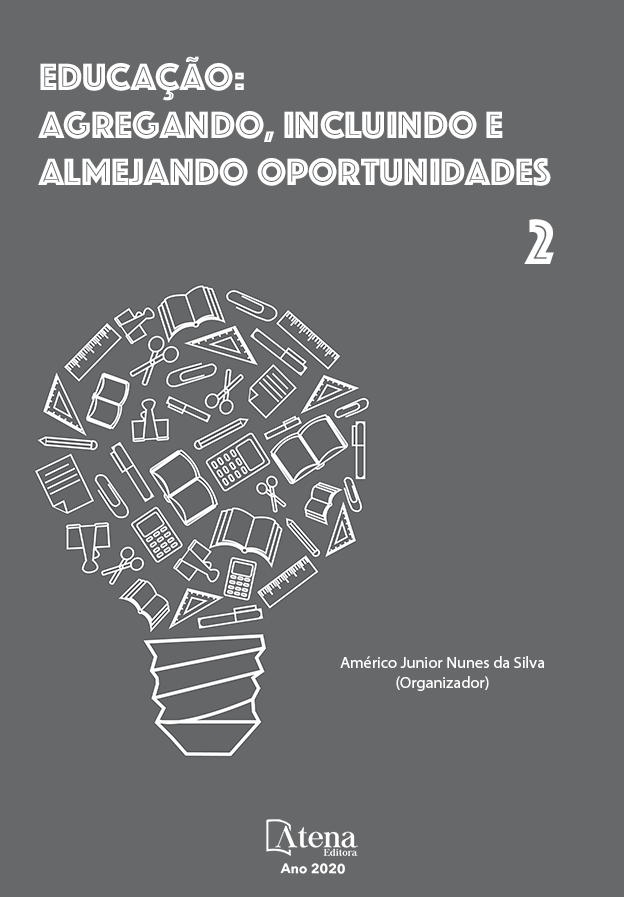
A INCLUSÃO DE SURDOS NO ENSINO DE QUÍMICA EM UMA PERSPECTIVA DE EXPERIMENTAÇÃO INVESTIGATIVA.
O processo de ensino-aprendizagem desenvolvido nas escolas públicas, com ênfase na inclusão de alunos surdos, ainda está distante da qualidade que almejamos, agrava essa situação no ensino de química, tendo em vista que, grande parte do processo é feito de forma tradicional, onde o professor é o centro e as aulas são na grande maioria expositivas, e grande parte dos alunos passivos, apenas assimilam conhecimentos complexos e de muita abstração. Entende-se que as aulas de química sendo expositivas favorecem a oralidade e dificultam a aprendizagem dos alunos surdos. Neste trabalho apresentou-se uma estratégia de inclusão de alunos surdos no ensino de química, em uma perspectiva de experimentação investigativa com análises físico-químicas de água de chafarizes. Para tanto, pretendeu-se desenvolver um trabalho de experimentação investigativa, usando parâmetros colorimétricos, no intuito de oportunizar igualdade no processo de ensino e aprendizagem, promovendo uma maior qualidade no ensino de química para todos. Com as análises físico-químicas das amostras de água dos chafarizes, pretende-se também, contribuir para o desenvolvimento de valores, comportamento e atitudes, favorecendo o senso crítico e ampliando a consciência de como suas ações impactam sua vida e para a sociedade inteira. A experimentação investigativa foi realizada com análises físico-químicas de amostras de água dos chafarizes situados nos bairros periféricos, no entorno do CEMAS - Colégio Estadual Machado de Assis e foram realizadas pelos alunos surdos e ouvintes desta escola, da turma de 3º ano “C” do ensino médio. O trabalho foi desenvolvido com metodologia qualitativa, do tipo pesquisa participante. Espera-se que esta alternativa de inclusão no ensino de química, utilizando a experimentação investigativa usando parâmetros colorimétricos, possa contribuir com o processo de ensino e aprendizagem, de forma que viabilize a compreensão de conceitos químicos de maneira contextualizada e significativa para todos os alunos.
PALAVRAS-CHAVES: Inclusão, ensino de química, experimentação, investigação.
A INCLUSÃO DE SURDOS NO ENSINO DE QUÍMICA EM UMA PERSPECTIVA DE EXPERIMENTAÇÃO INVESTIGATIVA.
-
DOI: 10.22533/at.ed.1912023092
-
Palavras-chave: Inclusão, ensino de química, experimentação, investigação.
-
Keywords: Inclusion, teaching chemistry, experimentation, research.
-
Abstract:
The teaching-learning process developed in public schools, with an emphasis on the inclusion of deaf students, is still far from the quality we aim for, aggravates this situation in the teaching of chemistry, considering that much of the process is done in a traditional way, where the teacher is the center and the classes are mostly expository, and most of the passive students only assimilate complex knowledge and a lot of abstraction. He understand that chemical classes being expositive favor orality and hinder the learning of deaf students. In this work we present a strategy of inclusion of deaf students in the teaching of chemistry, from a perspective of investigative experimentation with physical-chemical analyzes of water from fountains. To do so, it is intended to develop a research experiment, using colorimetric parameters, in order to promote equality in the teaching and learning process, promoting a higher quality in the teaching of chemistry for all. With the physical-chemical analysis of the water samples of the fountains, it is also intended to contribute to the development of values, behavior and attitudes, favoring a critical sense and increasing the awareness of how their actions impact their life and for the whole society. The investigation was carried out with physical-chemical analyzes of water samples from the fountains located in the peripheral districts around CEMAS - Machado de Assis State College and were carried out by the deaf students and listeners of this school, from the 3rd grade class "C" from high school. The work was developed with qualitative methodology, of the participant research type. It is expected that this alternative of inclusion in the teaching of chemistry, using investigative experimentation using colorimetric parameters, can contribute to the teaching and learning process, to enable the understanding of chemical concepts in a contextualized and meaningful way for all students.
-
Número de páginas: 12
- LUANA NOVAES SANTOS
- ANTONIO OLIVEIRA ROCHA


